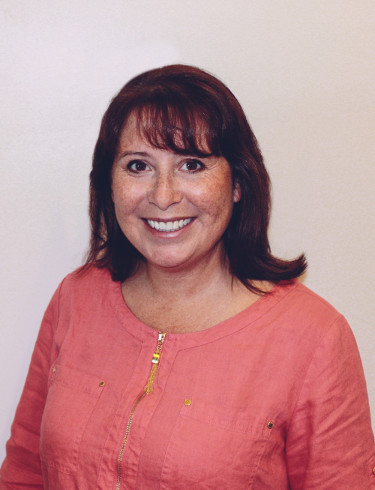Lakehead University names Denise Baxter as Vice-Provost, Aboriginal Initiatives

September 22, 2017 – Thunder Bay, ON
Lakehead University has named Denise Baxter as its new Vice-Provost, Aboriginal Initiatives effective Monday, Oct. 30.
“I’m thrilled she will soon join us at Lakehead,” said Dr. Moira McPherson, Lakehead’s Provost and Vice-President, Academic. “Her background in education, and her community and capacity building experience will be invaluable.
Baxter was the Principal of Adult and Continuing Education at the Lakehead District School Board. She has worked in multiple contexts, including public school boards, the Ministry of Education, Lakehead University, and First Nations private schools. She is completing her PhD in Equity and Indigenous Education at York University.
“Denise Baxter is joining Lakehead at a very important time,” said Dr. Brian Stevenson, Lakehead’s President and Vice-Chancellor. “Her experience with Indigenous youth and education will play an integral role in Lakehead’s future as we continue to grow and attract more Indigenous students.”
Baxter said she is excited to join Lakehead University and assist with the University’s commitment of furthering the educational aspirations of Aboriginal Peoples. “I’m looking forward to working with the University community, the Aboriginal Governance Council and Elders’ Council, and with community partners in realizing the University’s vision,” she said.
Dr. Peggy Smith became Interim Vice-Provost, Aboriginal Initiatives, in September, 2016, and she will retire at the end of October.
Denise Baxter’s Biography
Denise Baxter was the Principal of Adult and Continuing Education at Lakehead District School Board; she is concurrently completing her PhD in Equity and Indigenous Education at York University. As an established education leader, Denise has worked in multiple contexts including public school boards, the Ministry of Education, Lakehead University and First Nations private schools.
Within each of these contexts, she has built capacity and partnerships with multiple community stakeholders. Her work with the community has involved education conferences, workshop presentations, and capacity building with educators in First Nations schools.
Denise’s current doctoral research and professional writing support her educational experiences and are focused on decolonizing educational systems. She is a Marten Falls First Nation member, and maintains that preserving and practicing cultural traditions and ceremony keeps her connected to the community, Aboriginal cultures, traditions, and protocol. All of this has allowed her to establish networks, strengthen relationships with Indigenous communities and governments, as well as build capacity between First Nations and public and private partners. This includes partnerships that have supported multiple initiatives that advance educational outcomes for Aboriginal students.
Additionally, her cultural competency allowed her to serve as co-chair of the Ministry of Education, Literacy and Numeracy Secretariat's First Nations, Métis and Inuit Provincial Committee. Her extensive educational experience has included opportunities to lead and teach across multiple educational environments including public schools K-12, First Nations schools and First Nations private schools, and the university. As a public-school educator and leader, she has had the opportunity to work within high-need inner-city schools, French immersion schools, and adult and continuing education.
Denise has been recognized for achieving the highest provincial assessment scores in the school board in a significantly marginalized community school, building a collaborative inquiry project between English and French immersion students and teachers in conjunction with Lakehead University, as well as fostering a collaborative inquiry within adult and continuing education to decolonize the learning environment. Her work with First Nations schools has included building capacity with leaders and teachers, supporting school improvement, and opening Matawa Learning Centre Private Secondary School.
As a part of the Paul Martin Initiative, Denise had the opportunity to be a mentor in two First Nations communities in Southwestern Ontario. Through her mentorship, the communities achieved well above the provincial standard of 75% in the EQAO provincial assessment. Her recent experience with adult and continuing education has required her to manage a budget that is solely grant and community partner funded.
These efforts have led to opening four new sites this year. Most recently, she developed and co-instructed Lakehead University's Principal Qualification Program Part I and II. Denise’s masters work focused on building relationships with Indigenous parents and caregivers as a critical entry point for Indigenous families into the public school system. This research led to the creation of Aboriginal Presence In our Schools – A Cultural Resource for Staff which was adopted and adapted by several public and Catholic school boards across the province.
– 30 –
Media: For more information or to arrange interviews, please contact Brandon Walker, Media Relations Officer, at (807) 343-8177, or mediarelations@lakeheadu.ca.
Lakehead University has about 9,700 full-time equivalent students and 2,000 faculty and staff in 10 faculties at two campuses in Orillia and Thunder Bay, Ontario. Lakehead is a fully comprehensive university: home to Ontario’s newest Faculty of Law in 44 years, the Northern Ontario School of Medicine, and faculties of Engineering, Business Administration, Health & Behavioural Sciences, Social Sciences & Humanities, Science & Environmental Studies, Natural Resources Management, Education, and Graduate Studies. In 2016, for the second consecutive year, Re$earch Infosource ranked Lakehead first among Canada’s undergraduate universities. Visit www.lakeheadu.ca.


